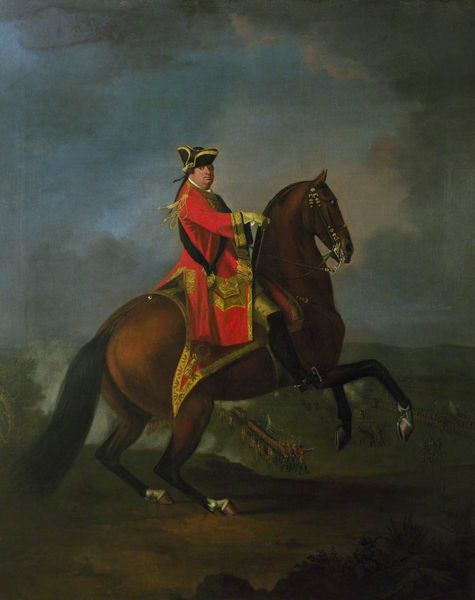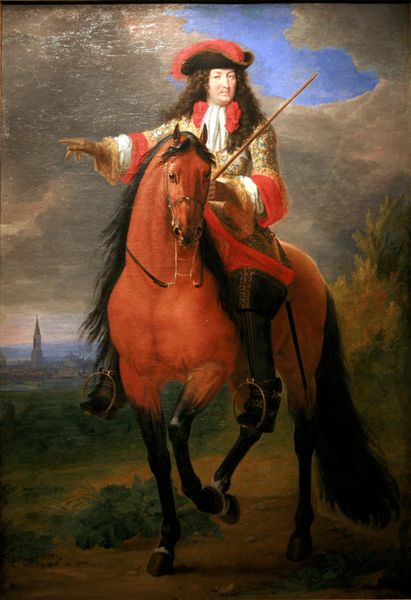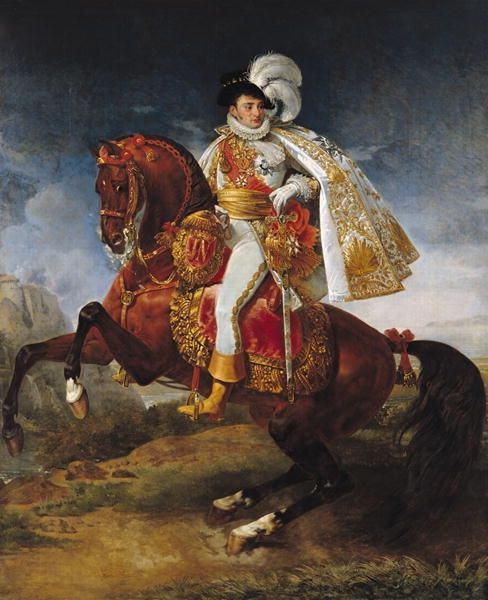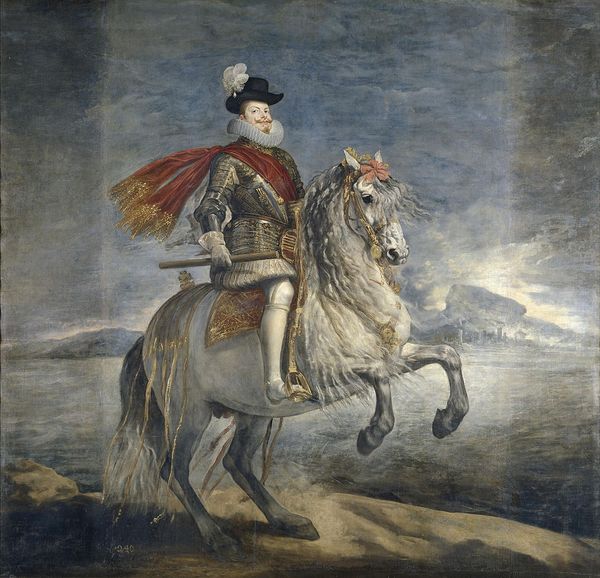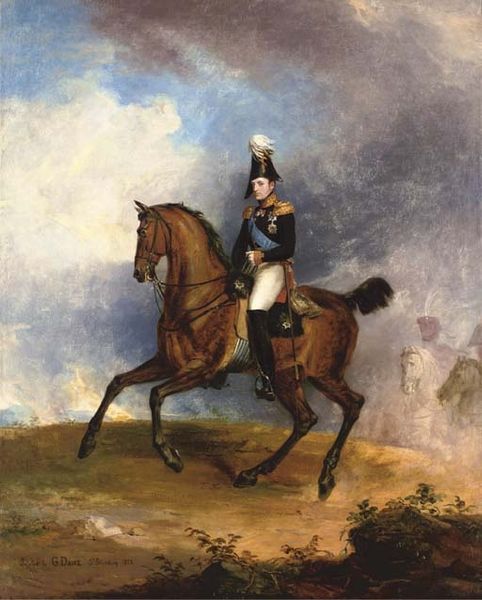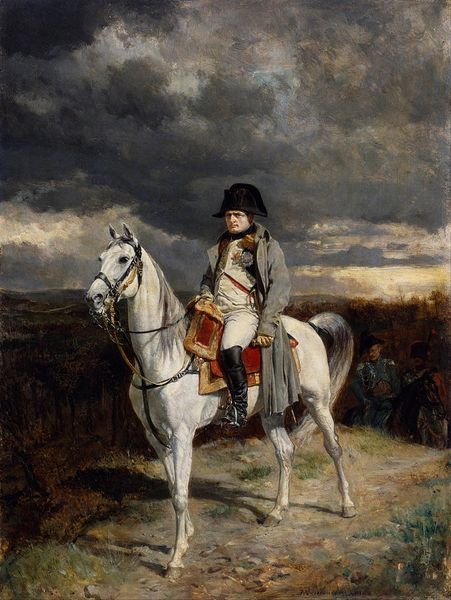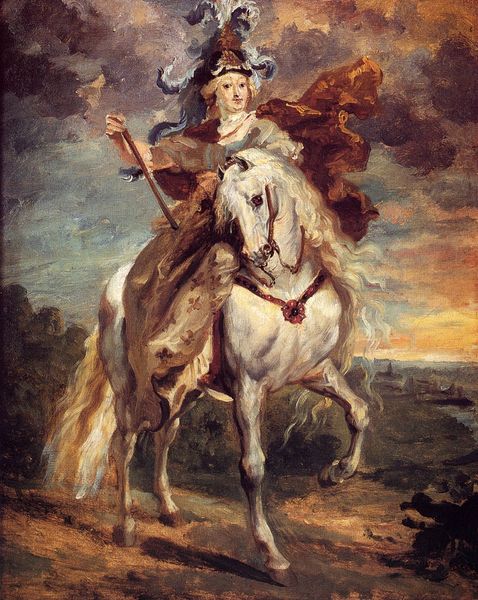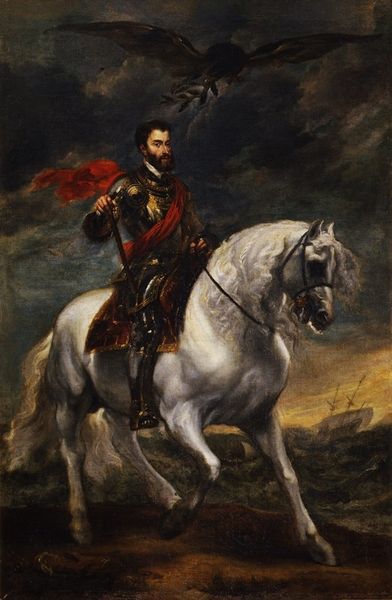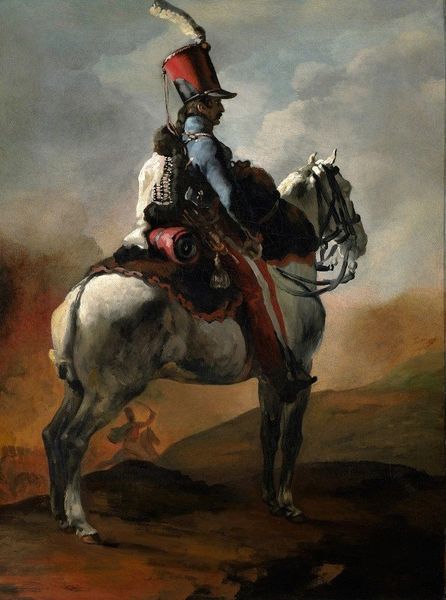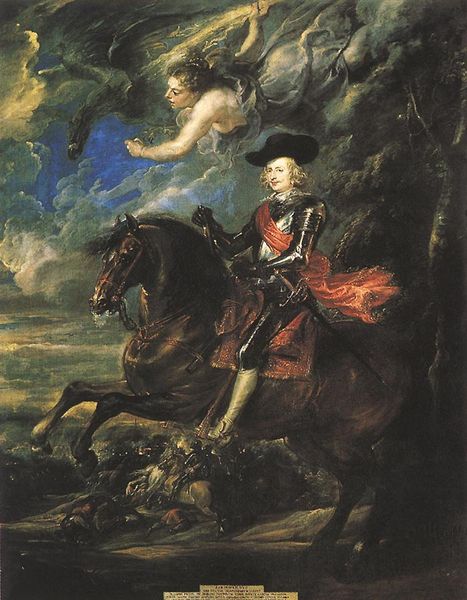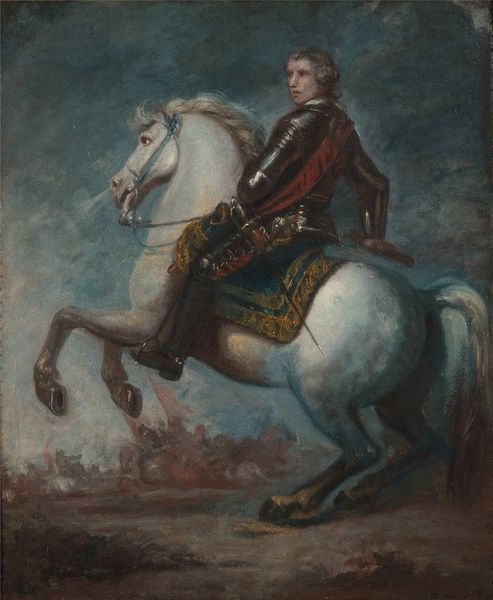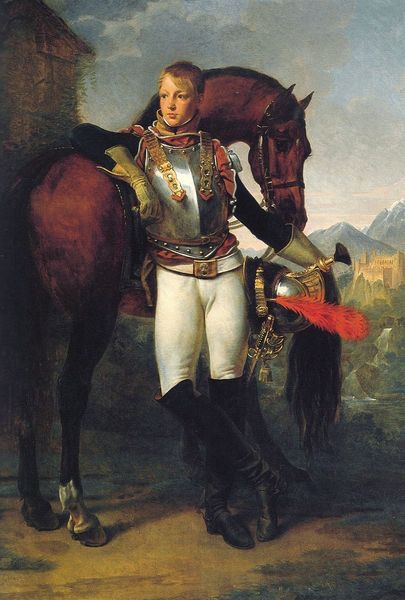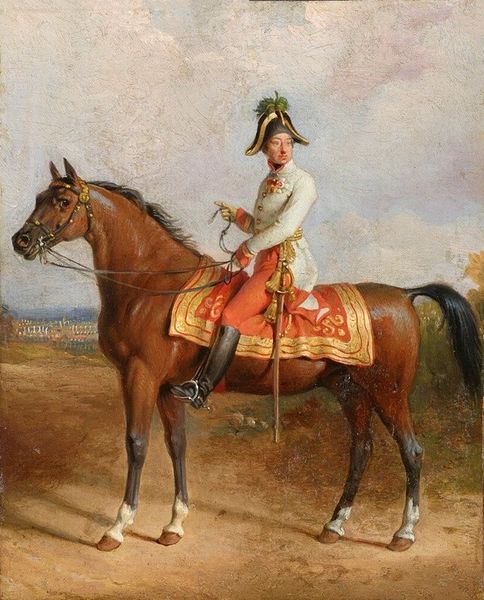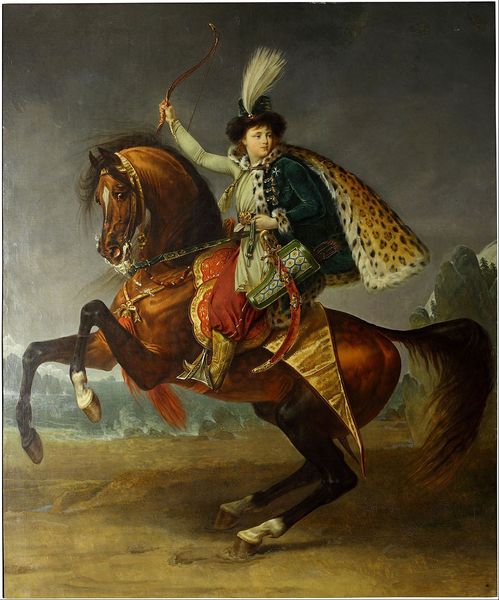
Equestrian Portrait of Charles I, King of England 1640
0:00
0:00
anthonyvandyck
Museo del Prado, Madrid, Spain
painting, oil-paint
#
portrait
#
baroque
#
painting
#
oil-paint
#
oil painting
#
famous-people
#
male-portraits
#
animal portrait
#
horse
#
history-painting
#
erotic-art
Dimensions: 123 x 85 cm
Copyright: Public domain
30th January 2025 marks the 376th anniversary of the execution of Charles I, King of England, following his charge with treason. This painting, completed by the official Principal Painter in Ordinary Anthony van Dyck (1599-1641), depicts the monarch before the outbreak of the English Civil Wars (1642-1649) which were to bring his downfall. A dramatic sense of majesty and magnificence is communicated throughout the painting, not least through its monumental height of over a metre. Charles I is positioned above the viewer, seated atop a white horse. This symbolically raises the monarch higher than the viewer to reinforce his status and significance. Imagine standing before the painting, looking up at the figure of the King; what does Van Dyck suggest about him? The portrait is an example of the Flemish Baroque, a style characterised by grandeur and drama. The stance of the horse, with one leg raised, creates a dramatic dynamism, while juxtapositions between light and shadow are used to enhance the painting’s theatricality. The King wears a complete suit of armour; Van Dyck has applied highlights of white paint to give the impression of glistening polished metal. The sense of absolute power and control suggested in this painting is in conflict with the tumultuous social context of the Civil Wars. Why might Charles I have commissioned Van Dyck to paint such a powerful portrait at a time when his authority was being challenged? Editor: Lucy Jude Grantham
Comments
No comments
Be the first to comment and join the conversation on the ultimate creative platform.
